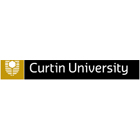Bachelor of Communications
Bachelor of Communications
In this course you’ll gain expertise in a variety of communications areas including journalism, digital media, screen production, public relations, marketing and graphic design. You’ll study subjects in media, design and business, gaining foundational knowledge in media and corporate communications and the scope to specialise in two fields of your…
Categories
COURSE DESCRIPTION
In this course you’ll gain expertise in a variety of communications areas including journalism, digital media, screen production, public relations, marketing and graphic design.
You’ll study subjects in media, design and business, gaining foundational knowledge in media and corporate communications and the scope to specialise in two fields of your choice.
You’ll also develop critical thinking and practical skills, using commercial-level equipment to produce content for print, radio, film, television and online media.
In your first year you’ll be introduced to the different spokes of communications and study optional units that reflect or refine your learning in specific communication areas.
In your second and third years, you’ll choose two specialisations to study: one media specialisation and one design or business specialisation, or two media specialisations.
Media specialisations
Corporate Screen Communication
Journalism
Web Media.
Design or business specialisations
Digital Design
Graphic Communication
Photography
Marketing Foundations
Public Relations.
How this course will make you industry ready
You’ll develop skills and knowledge in traditional and emerging media and communication roles.
You’ll use industry-level equipment to produce content and graduate with industry-ready skills.
You’ll build a portfolio of work and have opportunities to meet industry professionals.
What jobs can the Communications lead to?
Careers
Public relations officer
Market researcher
Media and communications consultant
Web communications consultant
Production coordinator
Web developer
Internet project manager
Marketing manager
Content creator
Media liaison officer
Filmmaker
Photographer
Advertising / creative advertising specialist
Cinematographer
Internet analyst
Website manager.
Industries
Media
Marketing
Public relations
Advertising
Film and television
Radio broadcasting.
What you’ll learn
Evaluate and apply theoretical frameworks to the fields of media and communication
Exercise initiative and creativity in professional practice
Develop effective communication and practical skills necessary for digital competence and media literacy
Utilise knowledge and skills in media and communication to engage with the complexity of global conditions, as well as the social, cultural, political, economic and technological shifts around media
Develop cultural capabilities to engage respectfully with First Peoples and people of all cultures, and demonstrate respect for Indigenous perspectives and all cultures in their community and professional practice
Initiate, design, deliver and promote industry-standard outcomes relevant to the two chosen specialisations, and with ethical practices in mind
REQUIREMENTS
Students from different countries should have qualifications equivalent to Australian Year 12 and a scaled mark of at least 50 in English, Literature, or English as an Additional Language or Dialect.
IELTS (International English Language Testing System) – Listening, Reading, Writing, and Speaking – 6.0; Overall band score 6.5; TOEFL Score: 79 (overall); Reading 13; Listening 13; Speaking 18; Writing 21; Pearson Test of English – Listening, Reading, Writing, and Speaking – 50; Overall band score 58; TOEFL (Test of English as a Foreign Language) and PBT (Paper Based Test) – 570 and 4.5 in TWE; C1 Advanced Formerly known as Cambridge English: Advanced (CAE) 176 with 169 in Reading, Writing, Listening and Speaking. C2 Proficiency Formerly known as Cambridge English: Proficiency (CPE) 190 with 176 in Reading, Writing, Listening and Speaking.
EDUCATIONAL INSTITUTION
Curtin University is Western Australia’s largest and most culturally diverse university with Australia’s third largest international student population. Around 60,000 students from more than 130 countries study a Curtin degree, at locations including Perth, Margaret River, Kalgoorlie, Sydney, Malaysia and Singapore. Our cultural diversity adds a rich and valuable dimension to the campus atmosphere, preparing all graduates to live and work effectively in an increasingly global environment. We offer a range of industry-aligned undergraduate and postgraduate courses in business, humanities, health, engineering and related sciences. We also have a long-standing focus on Aboriginal and Torres Strait Islander education and culture, supported by our Centre for Aboriginal Studies.Curtin is widely recognised for its practical research that is focused on solving timely, real-world problems. In recent years our research activity has grown significantly, driving our rapid rise up the international university rankings.As a university that never settles, we will continue to develop existing partnerships and establish new ones in areas relevant to our research and teaching.

